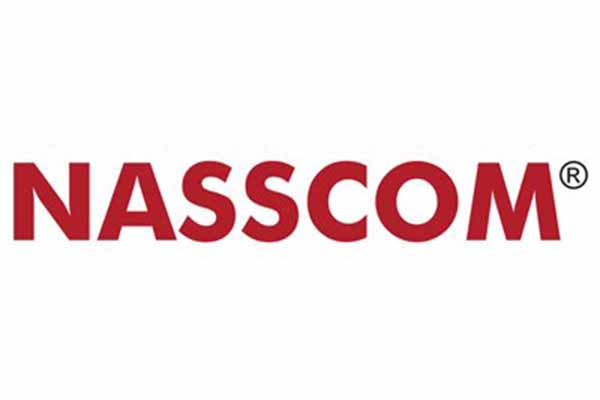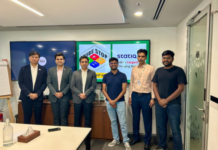Diversity, Equity, and Inclusion (DE&I) initiatives have evolved from being a “nice-to-have” initiative to becoming a critical component for organizations to attract and retain talent, foster stronger customer and stakeholder relationships, and ultimately achieve long-term success. nasscom, in partnership with Aon, has launched its report, titled “The DE&I Landscape in India Inc.: Bridging the Gap between Rhetoric and Reality.” The report sheds light on the current situation of DE&I practices across India’s varied industries and provides valuable insights and recommendations to create more inclusive workplaces.
Leadership Buy-in: Driving DE&I Success through Formalization, Budgeting, Tracking, and Prioritization
Diversity, Equity, and Inclusion in the workplace has matured over the past couple of years as businesses embed their DE&I efforts into their organization’s culture and values. As per the research conducted through comprehensive 2-stage surveys run by nasscom and Aon with over 220 participating organizations, supported by industry intelligence, the study reveals that 80% of organizations today have DE&I policies, with over 82% having defined DE&I goals, and 72% allocating dedicated budgets for DE&I activities. Further, 83%of organizations track DE&I metrics and 49% have established such metrics as part of their executive scorecards. A remarkable 95% of the organizations view DE&I as both a business imperative and a moral commitment.
Leadership support is crucial for DE&I’s success and leaders today are well-intentioned and committed to DE&I. As per the study, 73% of the organizations report that CEOs and Business Leaders are driving their DE&I agenda. Interestingly, the study also finds that organizations, where CEOs/Business Leaders are driving the DE&I agenda, have higher representation of women in comparison to those where the DE&I agenda is primarily driven by the Global DE&I Head.
Speaking on the launch, Debjani Ghosh, President nasscom said, “It’s encouraging to see organizations formalizing DE&I strategies, setting goals, and allocating dedicated budgets. Leadership buy-in and tracking DE&I metrics are crucial. By prioritizing best practices, organizations can foster a more resilient and inclusive workplace. it’s a culture that must be embedded into every aspect of the organization’s business including employee experience, from hiring to advancement and beyond to create environments where everyone can thrive.”
Nitin Sethi, CEO – India & South Asia, Human Capital Solutions, Aon said, “It is great to see organizations demonstrating the intent to prioritize DEI. We are seeing outstanding efforts by some who are re-imagining benchmarks and driving strong leadership accountability. At the same time, there is a need to go deep to translate intent into action and realize that the power of diversity can only be harnessed with equity and importantly, inclusion.”
Diversity, Equity, and Inclusion along with Belongingness have become an equally crucial component of organizational culture.
India Inc. is also inching forward towards becoming more inclusive with companies implementing policies that drive equality in treatment for all employees, regardless of their sexual orientation, disabilities, or gender. The study finds that 98% of organizations track gender diversity surpassing all other types of diversity. 83% and 71% track diverse representation at C-Suite and Board level respectively, while over 94% of organizations indicate offering equal access to career growth opportunities.
Although India Inc. has a long road to travel, both in terms of increasing the representation of LGBTQIA+ and driving an equitable and inclusive culture for PwDs, industries such as service and technology are leading the way with intentional hiring initiatives. The study finds that over 61% and 40% of organizations track PwD and LGBTQIA+ diversity respectively. Companies are adopting various best practices with a focus on implementing foundational practices like the inclusion of commonly known disabilities such as physical, vision, and hearing, talent sourcing through job fairs, specialized agencies & NGOs, accessibility to premises for PWDs & providing reasonable accommodation, spreading awareness, acceptance, and sensitization through trainings & programs, celebrating diversity & actively supporting LGBTQIA+ initiatives such as Pride month, and implementing gender-inclusive anti-harassment policies as well as redressal mechanisms at the workplace. Notably, mature practices such as creating a safe space to self-declare, gender-agnostic policies, inclusive health & benefits coverage, and focused hiring for people with Autism and other Neurodiverse Spectrums are also gaining momentum.
Recommendations
The success of DE&I initiatives necessitates a company-wide strategy that incorporates inclusion into systems, procedures, policies, and daily operations to make them core to business functioning. To accelerate their DE&I journey, organizations should prioritize leadership commitment, track data and metrics, and intentionally drive a DE&I culture. Further, leaders must champion DE&I, linking it to executive compensation, mitigate biases through trainings, ERGs, and AI-driven processes, track progress using surveys and engagement scores, expand diversity beyond gender, promote awareness of biases, and take tangible actions for DE&I to help create an inclusive environment for success.














